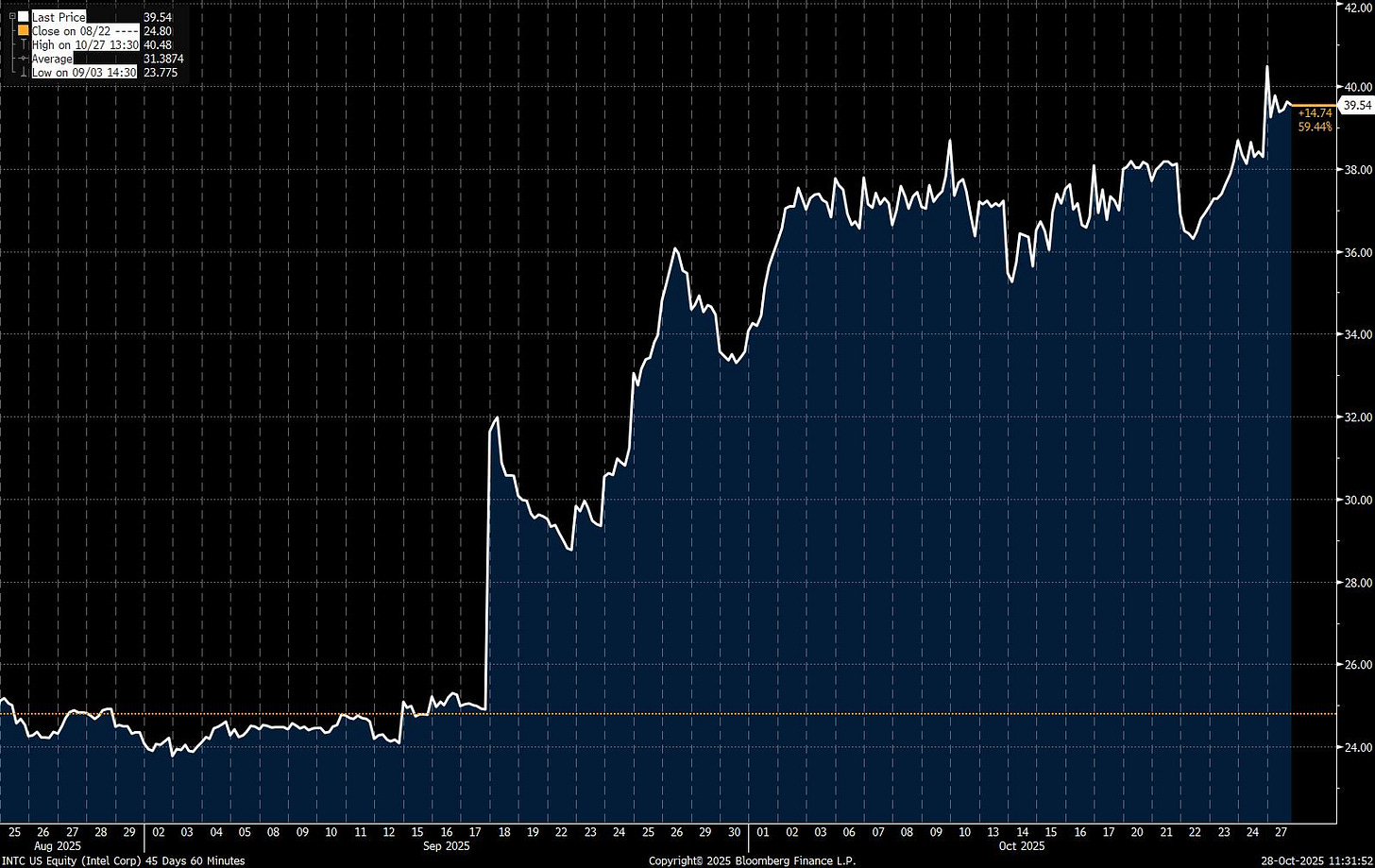The Wham! Index
"White House Asset Management..." because buying what the government buys is just obvious, right?
Amidst the intensifying GFC, Bill Gross said, “shake hands with the government and buy what they’re buying.” He stated this to advocate for his position in GSE debentures, and at that time, it was part philosophical and part survival strategy. This approach, which he articulated in January 2009, involved anticipating government and Fed actions and investing in the same areas they were supporting, like mortgage-backed securities, to profit from the resulting market movements.
That was the GFC. The government was saving markets from themselves. In 2025, the government is still very much involved, but in a very different way.
The idea of the US government using public funds to bolster domestic industry is not new. The Biden administration made this explicit through the CHIPS Act and the Inflation Reduction Act, deploying loans, grants, and targeted incentives to accelerate investment in critical sectors.
What the Trump administration has pursued, however, is a notable shift in approach. Rather than simply subsidising or underwriting private firms, it has moved to take direct equity positions in companies. There are a few deals already on the books.
July 11 — MP Materials Corp (MP). The company announced a multi-billion dollar partnership with Defense Department to accelerate US rare earth magnet independance.
August 22 — Intel Corp (INTC). President Donald Trump announced that the federal government had obtained a 10% stake in Intel. The company’s press release said the government purchased 433.3 million primary shares of the stock at $20.47 per share, equaling 9.9%.
October 1 — Lithium Americas Corp (LAC). The US Department of Energy took a 5% stake in Lithium Americas and a separate 5% stake in the company’s Thacker Pass joint venture with General Motors (GM), which is set to be the largest lithium source in the Western Hemisphere.
October 7 — Trilogy Metals (TMQ). The White House announced an investment of $35.6 million in Trilogy Metals (a 10% stake) to support mining exploration in the district. The deal also includes warrants to purchase an additional 7.5% of Trilogy Metals.
The government’s INTC deal is up 94% from its cost basis, putting the position about $8.3 billion in the green. Even if you bought after the fact, you would still be up a handsome 59%.
In 2009, “shake hands with the government” meant aligning yourself with the rescue. The state was stepping in to prevent system-wide collapse, and the trade was simple: go where the liquidity goes. Buy what the bailout supports.
2025 is not that.
The government is no longer backstopping excess. It is allocating capital with intention. Instead of waiting for markets to fail, it’s choosing the winner.
Recent news suggests the government isn’t finished. The US Department of Commerce is reportedly engaging in talks with a number of quantum-computing startups, such as IonQ, Rigetti Computing and D‑Wave Quantum, about providing federal funding (on the order of at least $10 million per company) in exchange for ownership stakes (equity) given to the Commerce Department.
However, when the government becomes a shareholder, the incentives shift.
The macro implication has advantages:
Preferential offtake terms
Accelerated permitting
Regulatory air cover
Protection from short-term market pressure
But it introduces constraints as well:
Limits on foreign sales and partnerships (Intel warns of international sales risk)
Policy-driven capex decisions
Reduced strategic flexibility
A new, political cost of failure
What Comes Next
The pattern is visible enough to extend. The speculation doesn’t need to be deep to identify what companies may be tapped next, so let’s speculate.




